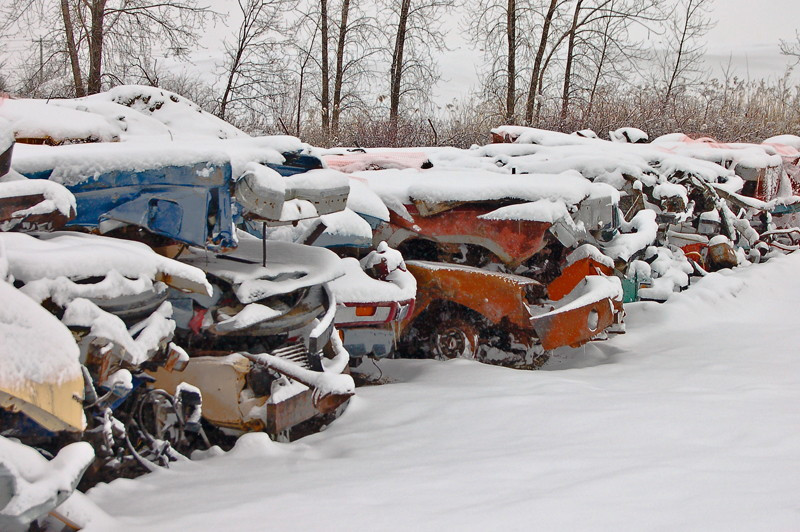Manitoba Public Insurance comes under fire from conservative think tank
Provincial representatives claim article is ‘short on fact and long on fiction’
Manitobans could be facing higher insurance premiums and increased unemployment rates due to a new and “misguided” environmental policy by Manitoba Public Insurance (MPI), says the Frontier Centre for Public Policy (FCPP).
“(This policy) is going to eliminate a large pool of cheap cars and that is bad news for low income people,” said Peter Shawn Taylor, a member of the FCPP and editor-at-large for Maclean’s magazine.
The policy, announced by Conservation minister Bill Blakie on Oct. 2 of last year, has put MPI front and centre in a plan to gradually eliminate cars built prior to 1995 on the basis of poor fuel efficiency.
Although Manitobans can still purchase and insure a pre-1995 car, starting this year MPI will no longer sell those vehicles in their salvage auctions.
Salvage auctions take place after a vehicle has been written off by the Crown corporation as damaged goods. Instead of being put up for auction, all pre-1995 cars written off by MPI will be sold for scrap metal and recycled.
Taylor argues in a recent FCPP article, which cites a number of American academic studies, that access to an inexpensive vehicle can be just as significant as a high school diploma when it comes to finding a job.
“How are you going to show up for the breakfast shift at 5:30 a.m. when you have to rely on the bus?” Taylor asked.
He added that the MPI policy is going to markedly reduce auction revenue. So much so, he claims, that Manitobans are likely to see an increase in premiums.
“ (This policy) is going to eliminate a large pool of cheap cars and that is bad news for low income people.
Peter Shawn Taylor, Frontier Centre for Public Policy
However, auction sales of pre-1995 vehicles amount to a very small fraction of MPI’s total revenue, said Brian Smiley, MPI spokesperson.
MPI has either held the line or reduced premiums for 12 of the last 13 years, he added, and unemployment will not be affected by the auction restrictions.
“Anyone can pick up an Auto Trader and see for themselves that there are hundreds of available, inexpensive vehicles on the market,” Smiley said.
Additionally, any cars sold at MPI salvage auctions are generally purchased by people who have the money and the resources to make expensive vehicle repairs.
“The (FCPP) column was short on fact and long on fiction,” Smiley said, adding that the people at salvage auctions are not generally impoverished.
Taylor of the FCPP also claims that the 1995 cut-off date was “picked from thin air.”
However, those who made the decision say that it was carefully thought out.
Randall McQuaker is the executive director of Manitoba’s Green Action Centre. He sat on the Vehicle Standards Advisory Board when it advised the government to reduce the number of pre-1995 vehicles driving on provincial roads.
“After 1995 there were some technical improvements to the way engines operate,” that make them more fuel efficient, he said.
McQuaker added that the board received technical advice from a number of reputable sources, including the University of Manitoba Transport Institute and Natural Resources Canada.
MPI’s Smiley claims that the FCPP’s only motive in criticizing the policy is out of a bias in favour of private auto insurance.
When asked about his position, Taylor responded that he favours private insurance and believes that MPI’s “monopoly” has thrust bad policy onto unsuspecting Manitobans.
Published in Volume 65, Number 16 of The Uniter (January 20, 2011)







